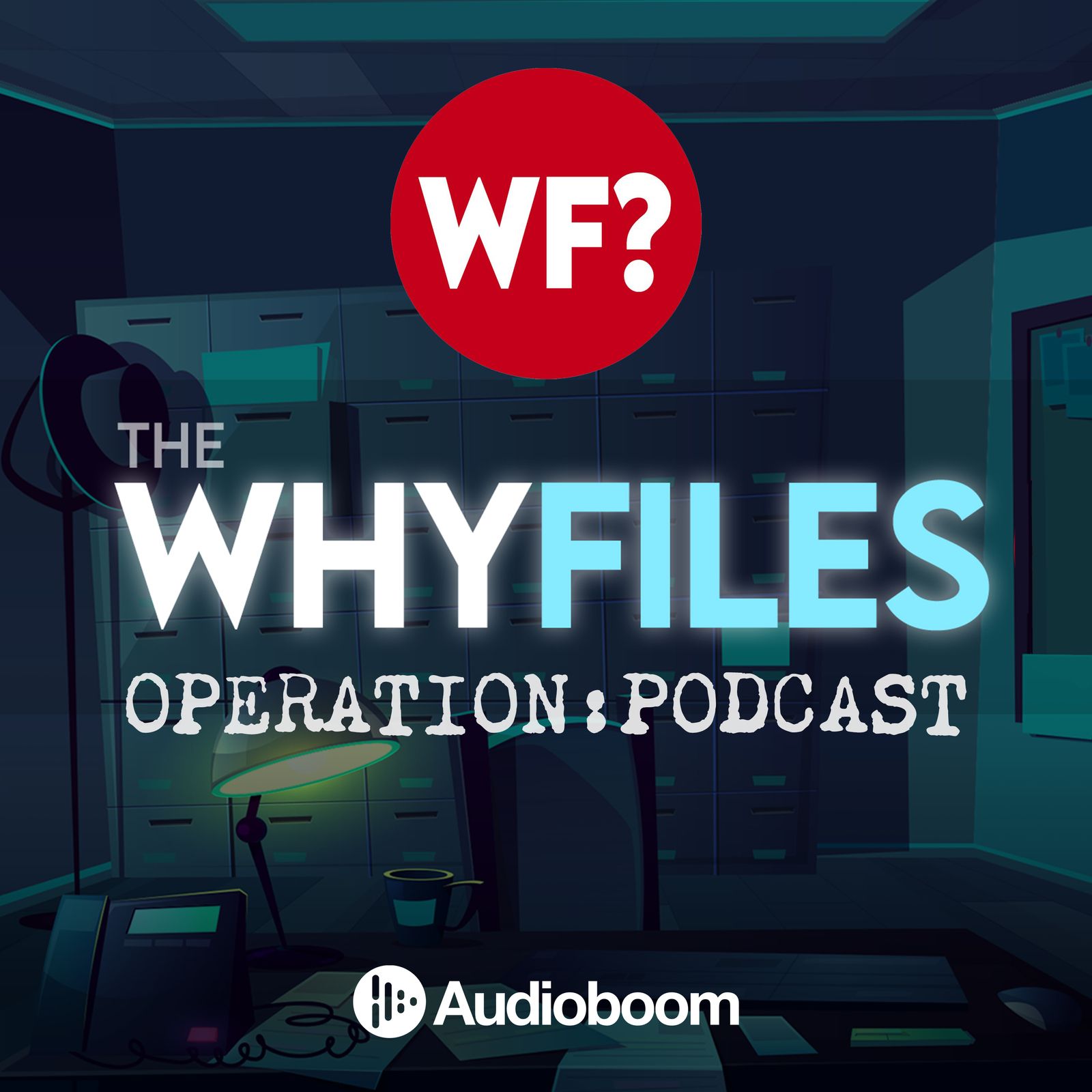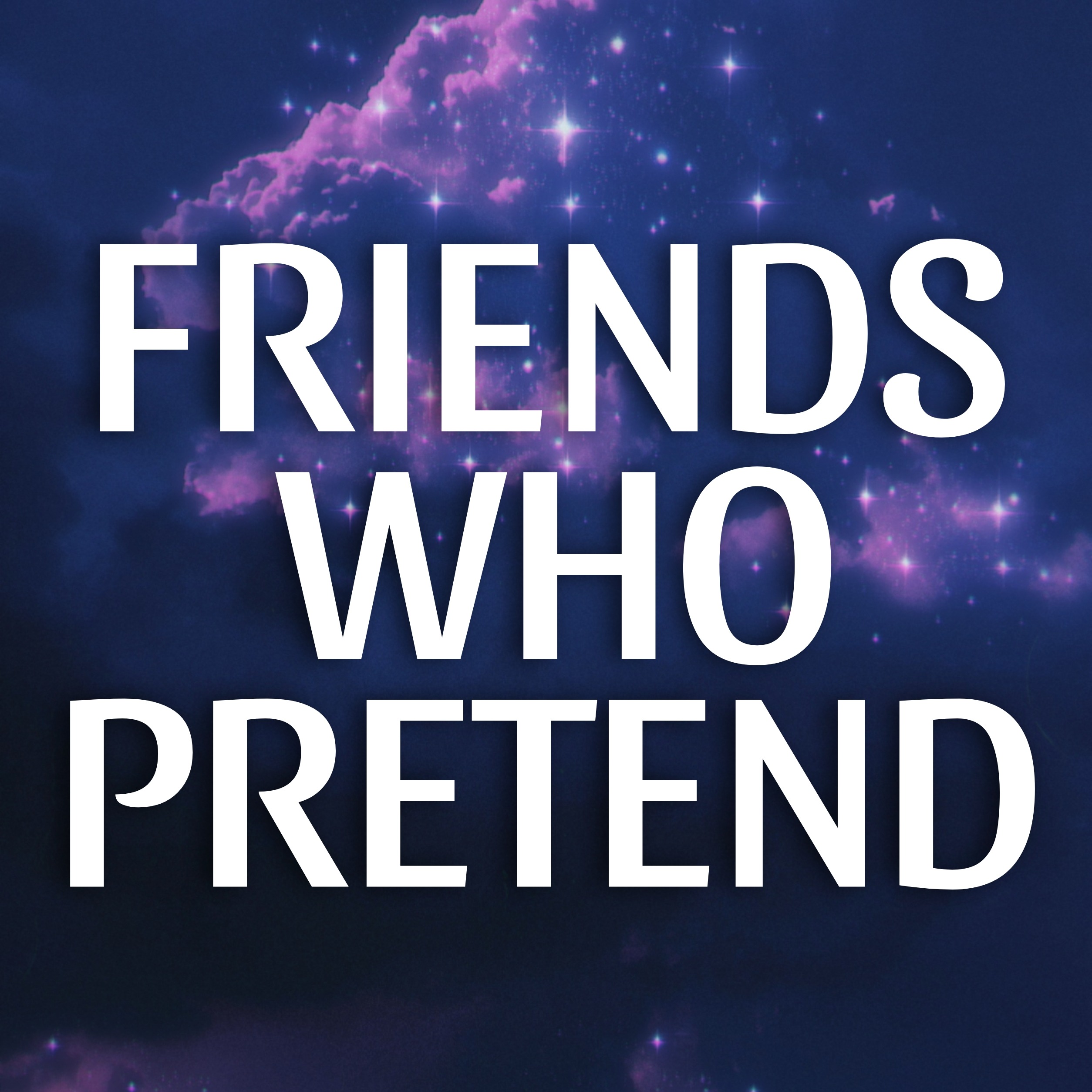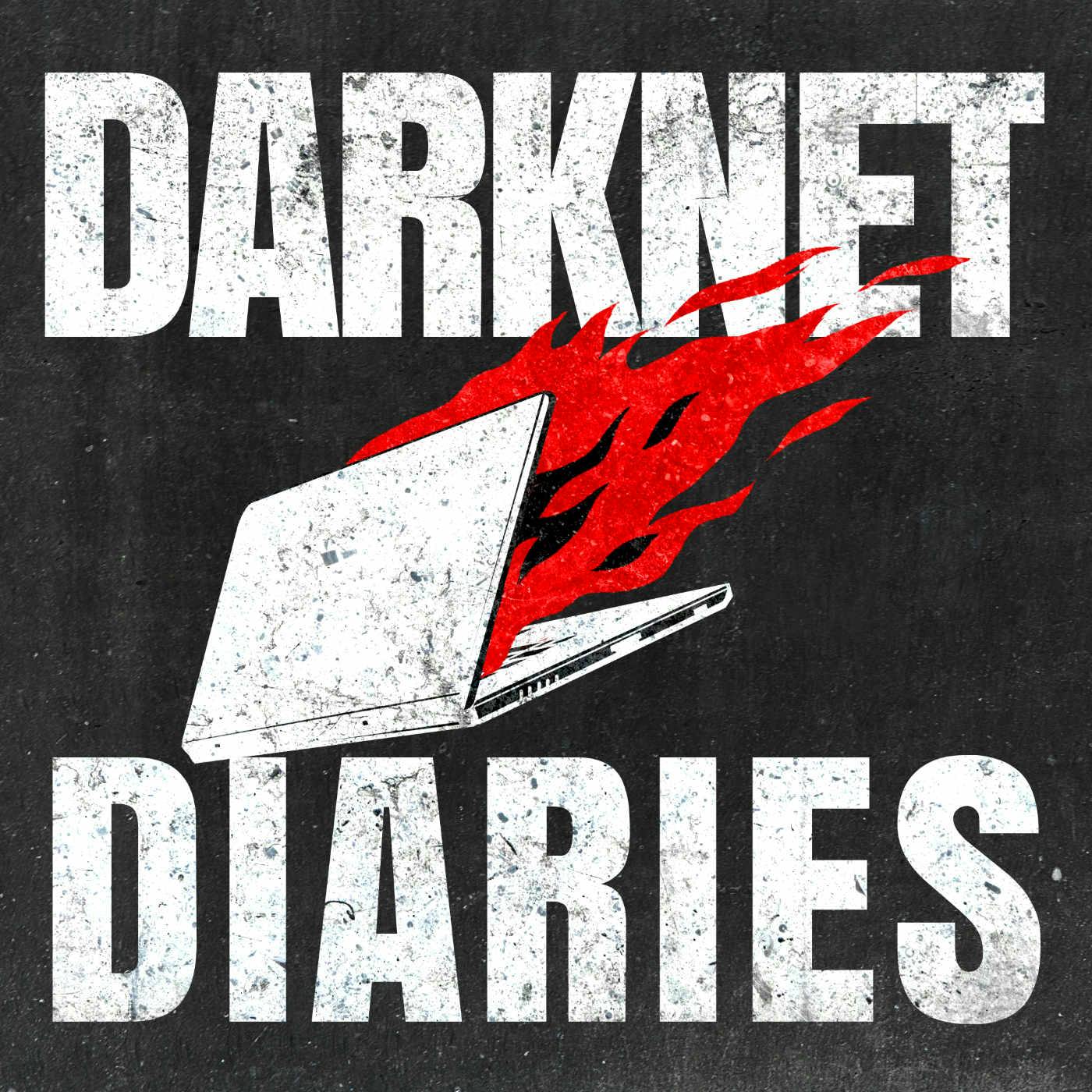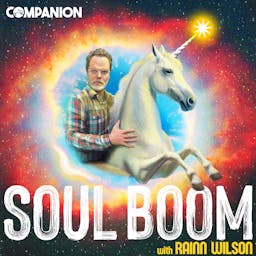Fully Modulated
Fully Modulated is your backstage pass to the stories and signals that shaped radio, TV, and wireless communication. Join Tyler, a broadcast engineer, as he uncovers the wild moments, quirky legends, and technical breakthroughs that keep the world connected. From vintage radio hacks to the real drama behind today’s digital waves, each episode blends deep research, humor, and storytelling for anyone curious about how media magic happens. Independent, insightful, and made for every fan who loves a good broadcast mystery.
Fully Modulated
When Metallica Discovered Their Own Song on Radio Before They Released It - The Napster Leak That Changed Music Forever
In 2000, Metallica drummer Lars Ulrich got the shock of his life: their unreleased song "I Disappear" was playing on radio stations across America - before they'd even finished recording it. This is the wild story of how a leaked demo ended up on Napster, radio DJs started downloading it illegally, and one phone call triggered the biggest lawsuit in digital music history.
Discover how radio stations accidentally became pirates, why Metallica sued 335,000 fans, and how this single incident destroyed Napster while creating the legal framework for every streaming service we use today. From studio vault to Senate hearings, this is the untold story of the leak that changed everything.
Perfect for fans of music history, 90s/2000s nostalgia, radio stories, and anyone curious about how the internet broke the music industry overnight. Learn the real timeline, hear the actual quotes, and understand why this case still matters in the Spotify era.
Credit: The "Napster Bad" image comes from the series that was produced in the years 2000-2001 by Bob Cesca from a group then known as Camp Chaos, satirizing Metallica and their MP3 sharing crackdown.
Send me a text message with your thoughts, questions, or feedback
Visible Wireless by Verizon
Same Verizon coverage, way cheaper bills. No contracts or hidden fees. $20 off for both of us.
If you enjoyed the show, be sure to follow Fully Modulated and leave a rating and review on Apple Podcasts or your favorite podcast app—it really helps more people discover the show.
Fully Modulated is not affiliated with or endorsed by any station, media company, or network. All opinions are solely my own.
Hey everyone, welcome to Fully Modulated, the show that digs into the weird, wild, and sometimes completely bonkers stories from radio history. I'm Tyler, and just so we're clear - I'm not connected to any radio stations or broadcasting companies. I'm just a guy who thinks radio stories are way more interesting than most people realize.
So today we're talking about something that happened in the year 2000 that basically broke the music industry's brain. Picture this: you're Lars Ulrich, drummer for one of the biggest metal bands in the world, and you get a phone call that goes something like this: "Hey Lars, your new song is playing on radio stations across America right now." And you're like, "Cool, which song?" And they're like, "That new one you guys recorded for Mission: Impossible 2." And you go, "Wait, what? We haven't even finished recording that yet."
That's exactly what happened with Metallica's song "I Disappear" in early 2000, and it kicked off one of the most important legal battles in music history. But here's the thing - this wasn't just about one leaked song. This was about radio stations downloading music from the internet for the first time and nobody really knowing what the rules were.
So let me set the scene. It's early 2000, and Metallica is working on this new song called "I Disappear" for the Mission: Impossible 2 soundtrack. They're in their studio, doing what bands do - recording different versions, tweaking things, you know, the usual process. They had recorded about six different versions of this song, all works in progress, all sitting in what they thought was their secure vault.
Then Lars Ulrich gets this call from their co-manager, Cliff Burnstein. And Cliff's like, "I Disappear is being played on 20 radio stations across America." And Lars is completely confused because, as far as he knows, the song isn't even done yet.
Years later, Lars described this moment perfectly. He said they were like, "How the fuck is this possible?" Which, honestly, is exactly what you'd say in that situation.
Now, here's where it gets interesting from a radio perspective. Back in 2000, radio programmers were just starting to figure out this thing called the internet. Napster had launched in 1999, and by 2000, it had over 26 million users worldwide. But most people still thought of it as this thing college kids used to get free music.
What nobody really anticipated was that radio DJs and programmers would start using Napster as a discovery tool. Think about it - you're a radio programmer, you're always looking for the next big thing, the exclusive track that'll make your station stand out. And suddenly there's this massive library of music at your fingertips, including stuff that hasn't been officially released yet.
So the next day, Metallica's office calls Lars back and tells him they traced the source. The song came from something called Napster. Now, Lars had never heard of Napster before this. Most people outside of college campuses hadn't. But here's what was happening:
Someone - and to this day, nobody knows exactly who - had somehow gotten hold of one of those six demo versions of "I Disappear" and uploaded it to Napster. Once it was there, it spread like wildfire. And radio programmers, who were always hunting for new content, found it.
Now, the technical side of this is pretty wild when you think about it. These radio stations were literally downloading MP3 files from random people's computers - typically at 128 kilobits per second quality, which wasn't great - and then putting them straight on the air. Stations like KIOZ-FM in San Diego and a station in St. Louis were competing to be the first to play this unreleased Metallica track.
The crazy part? This wasn't just happening with "I Disappear." When Metallica's lawyers started digging, they discovered that their entire catalog was available for free download on Napster. We're talking about every album, every B-side, everything.
But here's what really blew their minds - and this is the part that changed everything for radio. These weren't just random people downloading their music for personal use. Radio stations, actual commercial broadcasters, were using peer-to-peer file sharing as part of their business model. They were downloading unauthorized copies and then making money off them through advertising.
On April 13th, 2000, Metallica filed their lawsuit. Not just against Napster, but also against USC, Yale University, and Indiana University. This wasn't just about protecting their music - this was about figuring out what the rules were going to be for this whole new digital world.
And the radio industry was watching closely, because a lot of stations had been doing exactly what those stations playing "I Disappear" had done. They'd been using Napster and other file-sharing services to find new music, rare tracks, anything that might give them an edge.
The response from radio people was mixed. KIOZ-FM's operations manager, Bill May, told reporters, "I wish Lars had decided to find a way to profit from Napster instead of fighting it." He wasn't wrong about the business implications, but he was missing the bigger picture about copyright and artist rights.
Then in May 2000, Metallica did something that nobody saw coming. They delivered a 60,000-page list to Napster containing 335,435 usernames of people who had downloaded their music. These people got banned from the service overnight.
The backlash was immediate and intense. Fans felt betrayed. Other artists were split down the middle. Limp Bizkit's Fred Durst actually signed a $1.8 million deal with Napster and started giving away free music. Public Enemy's Chuck D supported Napster. But Dr. Dre filed his own lawsuit alongside Metallica.
The whole thing reached peak drama on July 11th, 2000, when Lars Ulrich testified before the Senate Judiciary Committee. Picture this: a rock drummer in a suit, sitting in front of a bunch of senators, trying to explain why peer-to-peer file sharing was going to destroy the music industry.
He told them about the "I Disappear" leak specifically. He said, "These were works in progress, never meant to be publicly released." And he was right - what ended up on the radio wasn't even the finished version of the song. It was a rough demo that made it onto 20 or 30 radio stations across the country.
But here's what's fascinating about the radio angle in all of this. Very few radio stations faced any direct legal consequences for playing the leaked track. Metallica's strategy was to go after the source - Napster - rather than chase down every individual broadcaster who played the song.
Why? Because they realized something important: if you stop the leak at its source, you don't have to play whack-a-mole with every radio station in America. Cut off the supply, and the problem fixes itself.
What this whole incident revealed was that radio was entering a new frontier, and nobody really knew what the rules were. For decades, radio had worked on a pretty simple system: record labels sent you music, you played it, you paid licensing fees, everybody was happy.
But suddenly, radio programmers had access to basically all music ever recorded, just sitting there on the internet. And the question became: what's legal? What's ethical? What's just good business?
Some stations saw Napster as a goldmine for rare tracks and exclusive content. Others worried about the legal implications. And artists were split between seeing it as free promotion or straight-up theft.
The interesting thing is, this wasn't really about the technology itself. Napster was just peer-to-peer file sharing - people sharing files directly with each other. The revolutionary part was the scale. Suddenly, 26 million people could share music instantly, and that included radio professionals who were always looking for the next big thing.
The Metallica vs. Napster case officially settled on July 12th, 2001 - exactly one year after Lars testified before Congress. Napster agreed to block music from any artist who didn't want their material shared. But by that point, the damage was done. The original Napster shut down on July 11th, 2001.
But here's the thing - this wasn't really the end of anything. It was the beginning of everything. The case established legal precedents that still govern digital music today. It forced the music industry to figure out how to work with technology instead of against it. And it showed radio programmers that the old rules still applied, even in the digital age.
Years later, Lars Ulrich reflected on the whole thing. He said, "I underestimated what Napster meant to people in terms of the freedom it represented." And he was probably right about that. But he was also right about artists deserving to control how their work gets distributed.
So what's the takeaway from all this? Well, the "I Disappear" incident basically taught the radio industry that the internet wasn't just a tool - it was a completely new ecosystem with its own rules and risks.
Today, radio stations don't download random MP3s from file-sharing services. They work with legitimate streaming services, record labels, and licensing organizations. But that lesson came at a cost, and Metallica paid it by becoming the bad guys in a lot of people's stories.
The crazy thing is, if you look at how music works today - with Spotify, Apple Music, and all these streaming services - it's basically what Napster could have been if they'd figured out how to pay artists fairly from the beginning.
And radio? Radio adapted. Stations found new ways to discover music, new ways to stay current, new ways to offer exclusive content to their listeners. But they learned to do it legally, with proper licensing and artist compensation.
So there you have it - the story of how one leaked song ended up changing the entire music industry, and how radio stations accidentally became players in the biggest copyright battle of the internet age.
The whole thing started with a phone call about a song on the radio and ended with Congressional hearings and legal precedents that still matter today. And it all happened because nobody really understood how fast the digital world was moving or what the rules were supposed to be.
Thanks for listening to Fully Modulated. If you enjoyed this episode, I'd really appreciate it if you could follow the show and leave a rating or review on Apple Podcasts or Spotify. Share it with your friends, and if you have any wild radio stories of your own, send them my way at tyler@fullymodulated.com.
You can also find us on social media - @fullymodulated on Facebook and @fullymodulatedpod on Instagram.
This has been Fully Modulated, where radio history is way weirder than you think.
Podcasts we love
Check out these other fine podcasts recommended by us, not an algorithm.

The Why Files: Operation Podcast
The Why Files: Operation Podcast
Sightings
REVERB | QCODE
This Week In Radio Tech (TWiRT)
guysfromqueens
The Ezra Klein Show
New York Times Opinion
Alive with Steve Burns
Lemonada Media
Friends Who Pretend
Chris Bryant
99% Invisible
Roman Mars
Hard Fork
The New York Times
Tetragrammaton with Rick Rubin
Rick Rubin
The 404 Media Podcast
404 Media
The Daily
The New York Times
Honestly with Bari Weiss
The Free Press
Search Engine
PJ Vogt
Pod Save America
Crooked Media
Danny Jones Podcast
Danny Jones | QCODE
Darknet Diaries
Jack Rhysider
Soul Boom
Rainn Wilson
